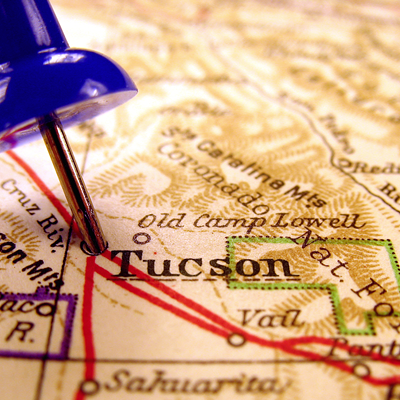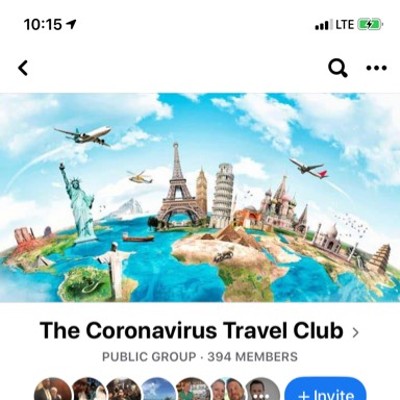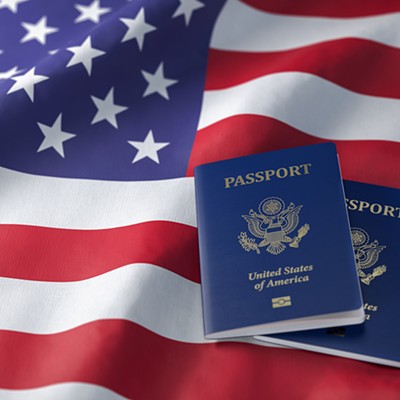Monday, December 21, 2015
Into the Mild: Journal From a Refugee Camp, Week One
Mytilene, Greece – December 2015
This is part two of a journal I’m keeping during my month working at a refugee camp in Greece. Part one, covering my last night in the US and two days in Athens, is here.
Dec. 9: It’s go time. After a series of subways and flights, I’m on the island of Lesvoz, the epicenter of refugee arrivals.
Now what?
I’d previously arranged to work in Molyvos, a town in the north of the island that desperately needed help a month ago. Since that time, thing have calmed down in Molyvos. Several senior members of the Greek government visited the camp in Molyvos before I came, leading to a pause in boats coming from Turkey. The Turkish coast guard is now patrolling the area near Molyvos at night, causing the smugglers to take boats further south. The city of Mytilene has now become the new major landing point. I decided to hold off on Molyvos for the time being and give Mytilene a shot.
Still unsure of where I will sleep or work, I decide to spend the day sorting clothes at a warehouse. This is a huge need on the island, as everybody dreams of coming and heroically helping refugees off of boats, but nobody dreams of heroically sorting shoes. I hailed a taxi in front of the airport and asked him to take me to the warehouse in town.
“Refugees?” he asks me.
“Yes, I’m going to the warehouse for refugees, where there are clothes,” I replied.
“You go to work for refugees, I will take you there?”
I tried to explain using the most basic English I could think of… “Yes, at the building with boxes, food, and clothing. The warehouse.”
“OK, we go to warehouse.”
Five minutes later, we were at Pikpa, which is definitely not a warehouse. Pikpa was formerly a summer camp for children with special needs, though it was abandoned and later became a refugee camp. It is now populated by at-risk families or refugees with special health conditions (i.e. pregnancy) that made them a poor fit for the general population at other refugee camps.
I dropped off my luggage in the office and asked what I could do to help. I spent the rest of the day doing odd jobs such as clearing grass to make a gravel path and peeling kiwi. We had a couple hundred pounds of unsorted kiwi that would become an odd food staple at the camp.
That night was spent singing songs about kiwi, sorting kiwi, eating kiwi, and making deserts with kiwi. Kiwi. We were joined by a young Afghani girl who spoke some English, but mostly just attached herself to a Swiss volunteer and yelled Oh my God! whenever one of us said something interesting.
I settled into a tent at the camp, assuming it would just be for the night. It was surprisingly nice, with a small space heater, plenty of blankets, and even wifi. My roommates were an Irish man who was one of the camp leaders, a Californian woman who had recently graduated from Cal Berkeley in physics, a Portuguese woman visiting from another camp, myself, and Hobbes. We agreed that we wanted to hear ghost stories. Unfortunately, none of us knew any good ghost stories… so we slept.
Dec. 10: I awoke at 6 a.m. and left camp to explore the area. It was bitterly cold and the camp is three miles from town, but exploring the coast, watching the sun rise over the Aegean Sea, and witnessing the shore blanketed by still-wet life vests and rubber rafts from previous refugee groups made the trip well worth the effort.
The daily work meeting finally came at 10:30. The volunteers gathered, introduced themselves, and discussed which projects needed to be done that day. An older woman and I decided that we would begin to turn the common room into a classroom. The goal was to get the Latin alphabet and numbers on the wall so that the refugees could study them and be able to write their names and phonetically read signs before leaving the island. Our hope was to eventually begin English and math classes for everybody there. We enlisted a young Syrian refugee, M, who spoke English well to help with the Arabic phonetic equivalents of the Latin alphabet (I speak Farsi, but some letters are different in Arabic). By the end of the morning, we had posters with the alphabet and the numbers 1 to 20 on the wall, plus a table ready for arts and crafts. M became a staff favorite and it was bittersweet to see him and his family go: ourselves all of the volunteers at the camp would miss him greatly, but we were all excited that his family were heading somewhere nicer.
That afternoon, I joined other volunteers and went to Camp Moria. Moria was the main processing center for refugees on the island.
While Pikpa resembled a summer camp, Moria was exactly what you would expect from a refugee camp. The United Nations High Commissioner for Refugees headquarters was behind a fence topped by barbed wire, refugees waited in long lines to be issued a pair of socks, and the stench of styrofoam being burned for warmth soaked the air. Tents were strewn about in no real pattern and young men sat out in the cold, unable to fill their time with anything meaningful.
I headed to Afghan Hill, where all refugees not from Iraq or Syria were sent, and worked as a Farsi interpreter outside of an aid tent for an hour or so. I then reunited with Pikpa friends and headed back to camp. I wished to stay longer at Moria, but my ride was leaving and Pikpa was too faraway to hitchhike or pay for a cab.
Dec. 11: The gravel for the paths we had been clearing arrived in the morning, leading to a long day of shoveling gravel. The monotony was broken up by a strange van arriving in the afternoon. After talking with the driver, I asked if I should gather the children for a presentation.
“You won’t need to worry about that,” the driver said as he put on his nose and began a grandiose march into camp, an absurd melody blaring from his plastic trombone with each exaggerated step.
IAEYAEAEEIYEEEYAEAEEYYEEIEYAEAEEEEIEIEEEEIEEYEYEYEY! screamed the Pakistani girl as she ran over and hugged his leg. A group of clowns spent the next two hours with the children, juggling, playing in a parachute, walking a tightrope, and shouting nonsense. The kids loved it. I’d by lying if I said I didn’t sneak away from work a couple of times to watch. Clowns Without Borders is definitely the coolest of the non-government organizations floating around Greece.
After the clowns departed, we got back to work shoveling gravel onto the paths to the bathrooms and in the area around the herb garden we had planted. After several hours of this, one of the elders at the camp looked at my afternoon’s work and asked me angrily What are you doing? Who told you to do this? She was very upset that we had used gravel to beautify places outside of the path, despite that having been our plan from the beginning. I deflected questions until the next morning. She promptly forgot about everything.
Dec. 12: Today was warehouse day. All volunteers are encouraged to spend their first two days working at a warehouse. This is advertised as an opportunity to help out while meeting new volunteers and learning about how things work at the various camps, but it was really just because of the avalanche of unsorted boxes in the warehouse. The pile of boxes was 10 feet tall in some places and easily took up the entire side room of the warehouse. Six of us spent the entire day unpacking boxes, sorting their contents, and repacking them into categorized boxes. We didn’t even dent the cartoon mountain of unsorted boxes.
I got back just in time to see J, a mascot for two professional sports teams in the states, playing with his six new girlfriends. All of the girls between 6 and 10 years old in camp are obsessed with J. He’s great with them and it’s touching to see the girls having so much fun. It would be perfect if J wasn’t so valuable in other areas, but when we are trying to build shelves and a line of girls demands his attention, it’s tough.
Dec. 13: Today was my day off. Sort of. Whenever I’m living in a group setting I need one day per week of privacy, preferable in a hotel. As I was about to leave, one of the women at the camp asked if I could help her take the trash out. I spent the next 45 minutes emptying trash and recycle bins, digging through the trash for clothes or recyclable items, and tidying up the area. I then caught a ride into town and checked into a hotel near the sea. The rest of the day was spent either at the sea, sleeping in an overheated room, or eating pizza.
I grabbed a doughnut on my way out the next morning and caught a cab back to Pikpa… but that is another story and shall be told next Monday in Journal From a Refugee Camp, Week Two.
Tags: ISIS , War , Travel , Europe , Explore , Into the Mild














